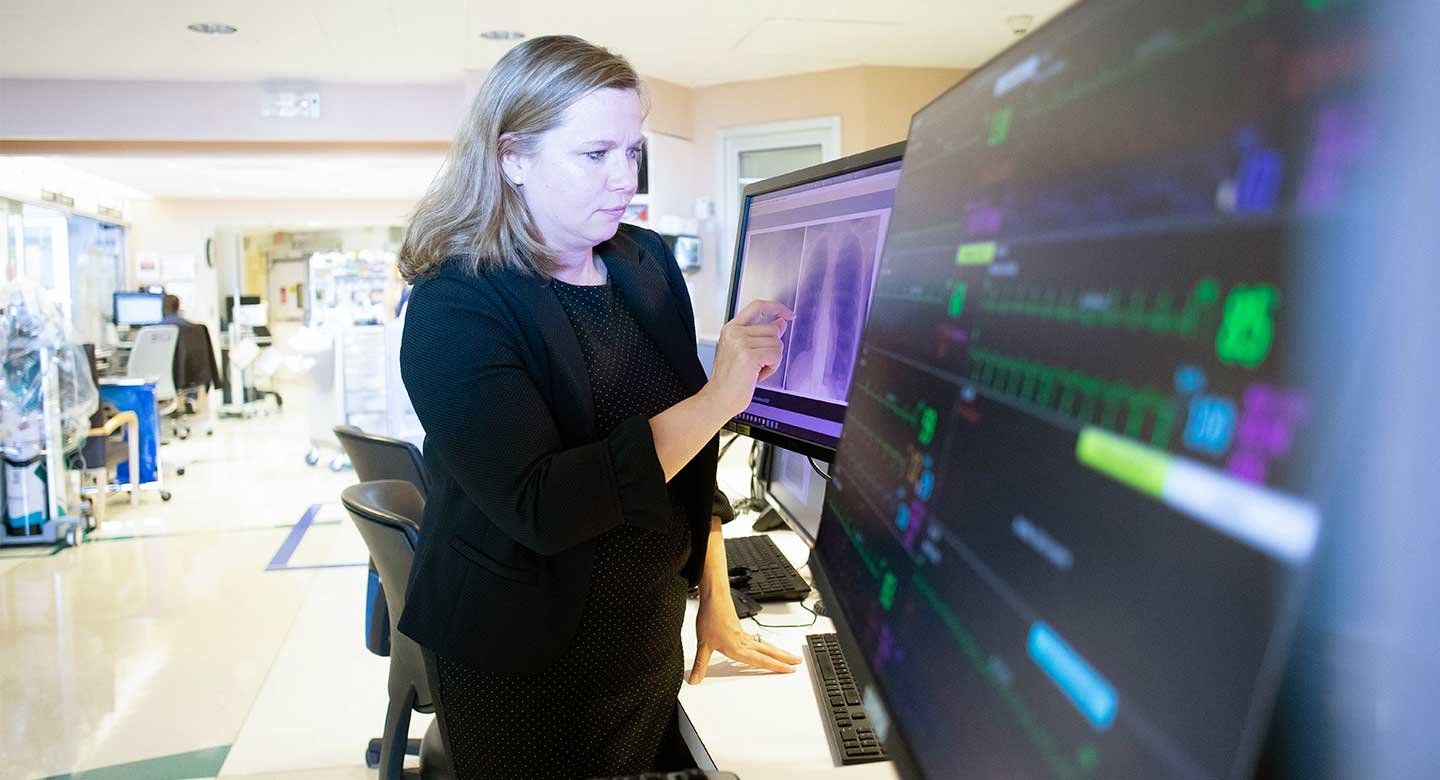UCSF Health Earns 9th Consecutive ‘Most Wired’ Hospital Award
The international benchmark of excellence comes as telehealth innovations have improved care, spared patients thousands of hours stuck in traffic and saved several million dollars in gas costs.
UCSF Health has been named among the nation’s “Most Wired” hospitals by health information technology leaders the College of Healthcare Information Management Executives (CHIME). The award is the latest recognizing UCSF Health’s commitment to being on the cutting edge of digital health and health information technology.
Digital health is the intersection of health and technology to improve health care. It includes areas such as apps, telemedicine and health IT – including the management of electronic health information.
... Our commitment to patient-centered innovation will equip our clinicians with the data and tools they need to provide the best comprehensive care.”
CHIME’s annual “Most Wired” hospital survey is an international benchmark of health information technology excellence. UCSF Health has won the award annually since 2015.
“We are proud to recognize UCSF Health’s exceptional dedication to digital health excellence,” said CHIME President and CEO Russell P. Branzell. Branzell called UCSF’s pioneering performance in the industry an inspiration to other organizations.
This remarkable achievement stretches far beyond information technology, CHIME added, and reflects an entire organization’s commitment to improving health care through advancing digital health strategies.
This year, the survey drew entries from more than 55,000 health care facilities. In particular, UCSF Health, including UCSF Benioff Children’s Hospital Oakland, received accolades for strategies harnessing the power of data to improve the quality of care while making it more efficient and adopting tools like telemedicine that put care at patients’ fingertips. UCSF’s highest scores were awarded in the areas of administration, supply chain, infrastructure and clinical quality and safety.
“This award recognizes UCSF Health’s rapid digital transformation,” said Russ Cucina, MD, MS, Chief Medical Information Officer for UCSF Health. “We believe that our commitment to patient-centered innovation will equip our clinicians with the data and tools they need to provide the best comprehensive care. This also empowers our patients to become true partners in care with innovations that put more information about their diagnoses and care at their fingertips wherever they are.”
UCSF’s medical centers consistently rank among the nation’s top hospitals, according to U.S. News & World Report, and see approximately 43,000 hospital admissions and 2.4 million outpatients visits annually. UCSF Health remains committed to being on the forefront of health IT and digital health by, for example:
-
Rolling out one of the country’s most utilized academic health telehealth programs, allowing patients to see health care providers from the comfort of home via virtual visits. Today, UCSF Health sees more than 100 patient visits a day like this, saving our patients about 9.8 million driving miles, $2 million in fuel costs, and more than 200,000 hours of driving as of January 2020
-
Becoming the first academic health system in the West to integrate dental and health records into a single electronic health record, allowing our clinicians to provide more comprehensive care
-
Pioneering the Care Ecosystem – a UCSF telecare program that improves dementia patient care and lightens the load for their caregivers. Recent research found that the program cut monthly Medicare costs by $526 per-patient. More than 25 organizations nationwide have replicated UCSF’s Care Ecosystem.
-
Debuting new, simple ways for patients to communicate with their clinicians during hospital stays, letting patients play a more active roles in their care
-
Featuring one of the largest fleets of robot hospital helpers, transporting medicines, meals and surgical instruments, saving health care workers time
